Obituary: Barbara Ruth Laslett
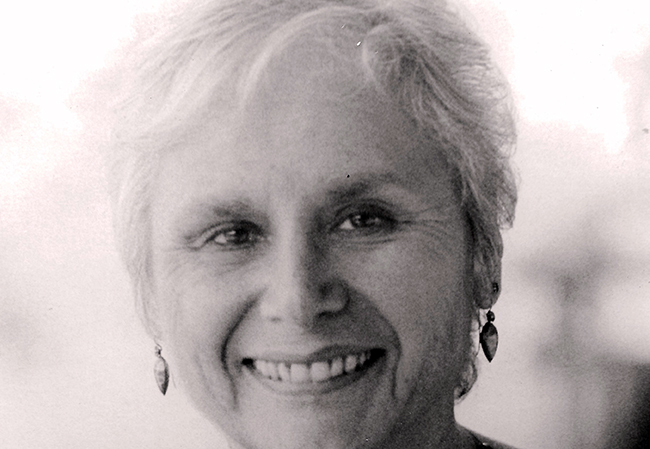
Sociologist, radical feminist, mother and grandmother, friend
Barbara Laslett had the soul of an artist, the heart of a warrior, the mind of a philosopher, and the intent of an activist. She was a sociologist, a radical feminist, a mother and grandmother, a wife (for a while), a friend, a sister-daughter-aunt. She loved to cook and was an adventurous eater. She loved to drink and talk. She swore with the best of them. Barbara was tough and loving. She was incredibly smart and deeply insecure. She loved to travel. She was intensely curious about the world as a way to understand global injustice and to understand herself. Barbara was a dancer, a singer, a jeweler and an intellectual.
Barbara was born into the Tauber family in Port Chester, New York on February 22, 1933. She died in Seattle, Washington on March 18, 2024.
Her parents were first- and second-generation Jewish immigrants from Eastern Europe. She and her brother Arnold grew up in the Bronx in New York City. Her father, Isidore, ran a deli, went bankrupt during the Depression, then became a traveling appliance salesman. Her mother, Frances, worked outside the home as a secretary which, in the early decades of the twentieth century, wasn’t common for women.
Barbara was raised around Yiddish-speaking grandparents, a language she never learned but which allowed her to understand some German. This occasionally came in handy when she traveled to Europe later in life. When she drew upon her broken Yiddish to ask a German gas station attendant if she could use the bathroom, he smiled at how she asked, but it got her to the bathroom.
A child of working-class immigrants, Barbara grew up in an unhappy birth family with financial struggles, and tensions between her parents and with family members more broadly. As Barbara understood it, her mother Frances, who was American born, felt she had married beneath her by marrying a first-generation immigrant from Romania, and felt trapped by the marriage expectations imposed on women at that time. Frances had a job she loved at MGM Studios in New York City (founded in 1924) before the movie industry moved to Hollywood. Initially, she moved to Los Angeles to keep her job but quickly returned to New York to marry Isidore.
As a feminist focusing on gender in the family and workplace, Barbara was intensely interested in her mother’s choices. Although she never fully understood Frances, imagining what her mother’s options were and how she made life choices was an important lens for Barbara to use to reflect on her own life history, which included her mother’s story.
An important formative life experience for Barbara was attending a racially integrated summer camp in the 1950s in upstate New York. That experience led to her lifelong commitment to anti-racism which became a central part of her political identity as well as a core tenant of her sociological work.
Barbara was a smart young woman who graduated from high school at age 16 and was pleasantly surprised when her parents supported her decision to attend the “Great Books” program at the University of Chicago. In Chicago in the 1950s, Barbara joined an exciting new world of personal freedom, left-wing politics, folk music, jazz and intellectual stimulation. She traveled to Europe for the first time with college friends. She had gotten pregnant and hoped to have an abortion in Europe long before it was legal in the United States. Easier said than done. She ended up having two abortions in the U.S. before the passage of Roe v. Wade in 1973, and was a lifelong advocate for women’s reproductive freedom.
Despite her smarts, Barbara wasn’t a very good student during her first years at college. In fact, she dropped out and moved back to New York for a few years where she worked in the advertising industry, took dance classes, sang in a leftist community choir, and hung out in the folk music scene of Pete Seeger, Woody Guthrie, Paul Robeson and The Weavers. She didn’t return to Chicago to finish her bachelor’s degree until the late 1950s. That’s when she met John Laslett, who had come from England to do research for his doctorate. They married in 1959 and moved to England where he finished his degree at Oxford University. They planned to live in England permanently until John received a job offer from the University of Chicago. Up to that point, Barbara had not considered an academic career. It wasn’t until after they moved back to the U.S. that she return to the university to get her master’s degree and eventually her Ph.D.
Barbara and John had two children in Chicago, Michael born in 1962 and Sarah in 1964. Barbara successfully completed her advanced degrees as the mother of two young children. Writing her dissertation on a manual typewriter using carbon paper (her secretarial skills served her well), she kept the carbon copy in the freezer just in case there was a fire. The Laslett family moved from Chicago to Los Angeles in 1968.
For Barbara, an important symbol of achieving independence from her birth family was buying a Christmas tree once she was living on her own. She loved the beauty of those trees. The Laslett family celebrated Christmas with gusto, drawing on John Laslett’s English family traditions. As a mixed family, they would often have Hannukah latkes as their Christmas Eve dinner.
An exception to Barbara’s alienation from her family of origin was her relationship with her cousin, Martin Weinberger, his wife, Janis, and their son Peter. These were the family’s closest relatives during the Los Angeles years. The Lasletts visited the Weinbergers at their home in Claremont, California for holidays, enjoying the Claremont July 4th parades, trips to Mt. Baldy, and watching the evolution of the Claremont Courier which Marty and Jan, then Peter led with such passion and creativity.
During Barbara’s academic career she fought to open doors for those who were excluded or marginalized in academia — people of color, people from working class backgrounds and non-traditional students. Barbara was particularly devoted to the support of young women coming up in academia. She fought that battle on her own behalf as well having been fired from her first tenure-tracked job in the Department of Sociology at USC in the 1970s. According to her then-colleague, Carol Warren, “At USC, the first year Barbara and I were hired there, the Chair said that he had to fire one of us because of budget. And it would be Barbara (some excuse was given, but it was obviously age). We decided to stick together, and told him, if one goes, the other goes too. He kept us both.”
While Barbara’s age and sex may have been the bases of discrimination against her, Barbara also challenged the department with her explicit socialist feminism. She took issue with the heavily quantitative version of sociology practiced in that department at that time. Her emerging feminist consciousness, political activism, and personal experience led her to value life stories and other qualitative data which was, and often remains, the most powerful way for marginalized voices to claim social and political space and demand justice. She sued USC for discrimination. With the support of students and fellow faculty members, she won her job back, with tenure. That allowed her to enter her next faculty appointment at the University of Minnesota in the early 1980s as a full professor. Barbara was nothing if not a fighter.
Barbara was a collaborative scholar, co-authoring multiple articles and books with other feminist intellectuals, including Johanna Brenner from Portland State University. Barbara and Johanna’s personal and professional relationship developed through their evolving feminist consciousness, shared experience of parenting, divorce, academic achievement and political activism, and travel. Barbara’s love of travel opened her eyes to the broader world beyond the usual boundaries of “a nice Jewish girl from the Bronx.” As a scholar and a teacher, she developed lasting relationships with some of her students and collaborated with academics from Hungary, Turkey, Finland, England and Holland. She also traveled to Africa, Central and South America, and was a devotee of the Vancouver Folk Music Festival in British Columbia, Canada.
This was the childhood environment in which Sarah and Michael were raised. The Lasletts lived in an expansive world where travel, music, trying new things and challenging the status quo were valued and encouraged. In the 1970s, Barbara gave Michael her guitar, which he has taken to many protests and union meetings, and still plays to this day. Barbara taught her children political folk music, which they sang together. She also loved jazz, blues and show tunes.
Barbara was a secular Jew who rejected organized religion but wanted cultural and political Judaism to be part of her family and community. The Lasletts celebrated ‘lefty’ Passover Seders with other progressive Jewish families, a tradition that Sarah and Michael continue to this day. Barbara loved being a mother and took great pride and joy in the accomplishments of her children, particularly their musical interests, and careers in the labor movement. She expected them to live as feminists in their personal and professional lives. When Sarah came out as queer, Barbara supported and celebrated that. As a family, they attended women’s music concerts in the 1970s. Michael remembers tears running down Barbara’s face at a Holly Near concert.
Barbara wanted to talk about everything. Emerging from her belief that the personal was political, openly analyzing relationships was fair game and she had high expectations of those close to her. This could sometimes cause friction; appropriate boundaries were not one of Barbara’s strong suits. This was, perhaps, the downside to her ferocious willingness to challenge exploitative status quos. She often paid a personal price for the roles she played in public, political, and personal life.
Barbara retired in 2001, first moving from Minneapolis back to Los Angeles and then to Seattle to be a grandmother to Michael’s two sons, Kai and Rio Laslett-Vigil.
Starting in her early 70s, Barbara began developing dementia. After decades of decline into this debilitating condition, Barbara could no longer walk, talk, feed, dress or bathe herself, let alone read, sing, work on a computer or follow the news. Michael and Sarah knew that she would never have wanted to live that way but could only witness her long decline. Although they spent a lot of time engaged with her life, they could not help her die. She received excellent care, especially at JoyTera Adult Family home in Seattle where she spent the last several years of her life.
When death finally came, it was both a relief and a great sadness. She had been gone for a long time before her life finally ended. Sarah and Michael came to understand the difference between someone being absent and being dead, and tried to remain present for her, even as her own ability to be present in her life waned.
Barbara’s passing allows her family to remember her whole life, not just the final years of decline. They mourn her loss and share all that she gave to them, and so many others. Her children, grandchildren, extended family, friends and colleagues honor her memory.

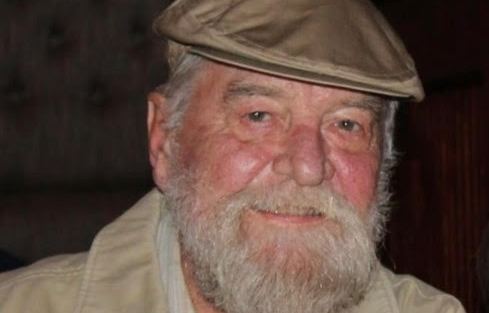
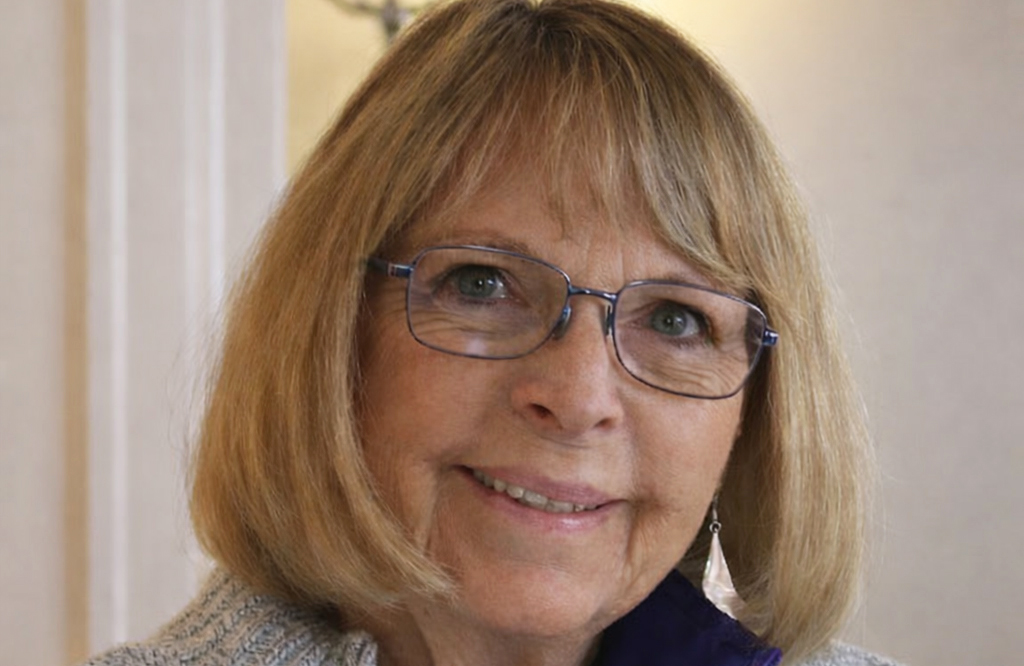
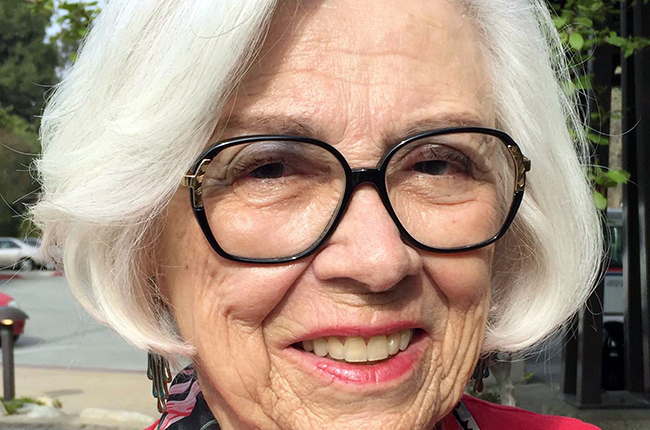
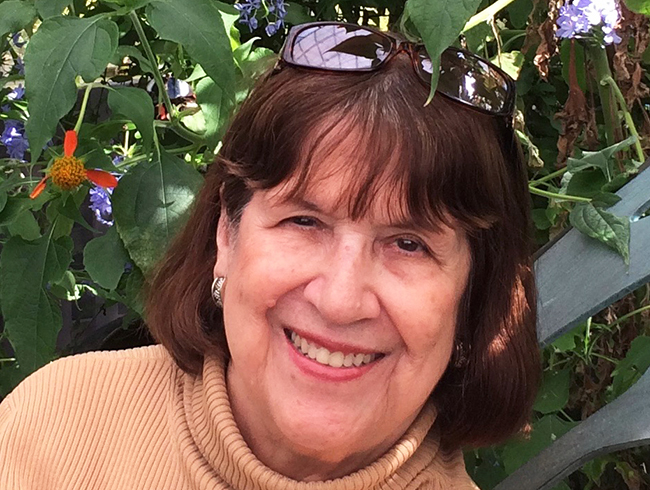
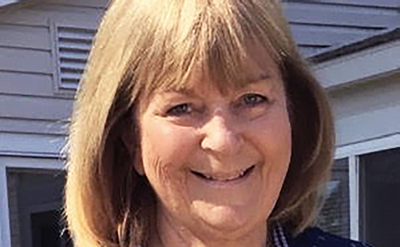
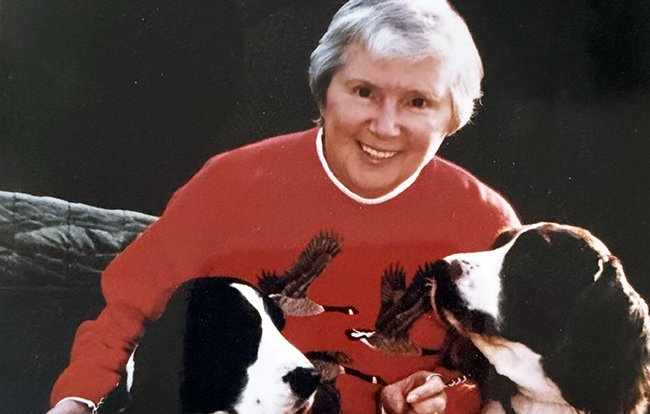

0 Comments